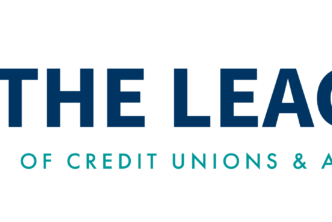Speakers and attendees at the League of Southeastern Credit Unions & Affiliates spent the inaugural meeting of LSCU Councils trading invaluable knowledge about how credit unions can achieve success in the wake of the unprecedented events of 2020.
“We’ve had many credit union professionals approach us about joining councils since we launched membership registration in November,” said Maureen Bock, vice president of education and training at the League. “The insights shared at our first meeting were extremely valuable for attendees — and we’re looking forward to many more.”
LSCU Councils are discipline-specific networking groups designed to help credit union professionals excel in their fields and advance their institutions. These motivated groups of peers will meet several times a year to network, share resources, learn best practices and engage in meaningful discussion regarding their specific role in the credit union industry.
Each quarter through mid-2022, LSCU will be launching new councils; eight in all. Tuesday’s meeting was a joint one between the LSCU Compliance Council and the LSCU Payments Council, the first two councils that launched this quarter. Membership enrollment in the LSCU Compliance Council is quickly growing. And since LSCU Payments Council membership is currently covered in the LEVERAGE Card Processing and/or Chargeback Recovery Agreements with LEVERAGE, more than 150 credit unions are currently enrolled as members in this council. Credit unions that are not clients in card processing or chargeback recovery through LEVERAGE may also join the council.
The meeting featured speakers including analysts from the Southern Region Supervision Analyst from the National Credit Union Administration (NCUA), ATM experts, payment and risk experts and regulators and examiners from the Florida Office of Finance and Regulation (Florida OFR) and the State of Alabama Credit Union Administration (ACUA). All emphasized the importance of meetings like these in the wake of compliance and regulation changes through the COVID pandemic.
“This has been a busy year for the NCUA,” said Chelsea Bieser, NCUA Southern Region Supervision Analyst, to the more than 70 credit union attendees gathered at the virtual joint meeting. “What a sign of the times that we had 22 regulatory letters come out to credit unions credit unions by June of 2020.”
Chelsea discussed the regulatory pitfalls that came along with a year when credit unions needed to step up to help a large number of members who were struggling financially — and gave valuable insights into how NCUA has responded and will respond to these changes in the future.
“Credit unions have done a really good job working with their borrowers during this unprecedented event,” she said. “We’ll see that in 2021, the ability to repay loan modifications will be a main focus of the NCUA.”
Jeremy Pollock, financial control analyst at Florida OFR, Lloyd Moore, assistant administrator at ACUA and other OFR and ACUA contacts confirmed that state regulators have shifted their focus toward creating a safe and effective operating environment for credit unions dealing with 2020 pitfalls. That includes codifying rules that allow CUs to conduct member meetings virtually, conducting virtual exams and addressing capital preservation plans in the wake of the COVID pandemic.
These new rules and changes come down on organizations that are already among the most heavily regulated in the country.
“When you look at the way the financial industry is regulated, it becomes clear: it’s probably easier to store nuclear fuel rods outside of the city than it is to give a mortgage to a member that has a 620 credit score,” said David A Reed, Esq. of Reed and Jolly, PLLC., who spoke to the group Tuesday about avoiding payment landmines.
On top of the added regulation, David pointed out that CUs must always be innovating — even in the wake of 2020.
“How many credit unions have the tagline: ‘all paper all the time,'” he said. “Nobody. Those credit unions have been bought up by their more innovative peers.”
All those facets of potential pitfalls can be overwhelming. And that’s exactly why LSCU Councils are so important for keeping credit unions up to date and competitive, especially during times of crisis.
Mike Williams, ERM Manager at Atlanta Postal Credit Union and a member of the LSCU Councils Executive Committee, said he was impressed with the quality of information that came from the discussion.
“There were many takeaways to say the least,” Mike said. “I think it was great how the ACUA, NCUA and FL FR spoke about the state of credit unions due to the COVID-19 pandemic and how reserves, earnings and other things related to balance sheets have been affected. I can’t wait to take this knowledge back to my credit union — and to see what else we can learn from LSCU Councils!”
Registration for the LSCU Compliance Council and the LSCU Payments Council is open now. IF you have any questions, please send them to councils@lscu.coop. Click here for more information.




